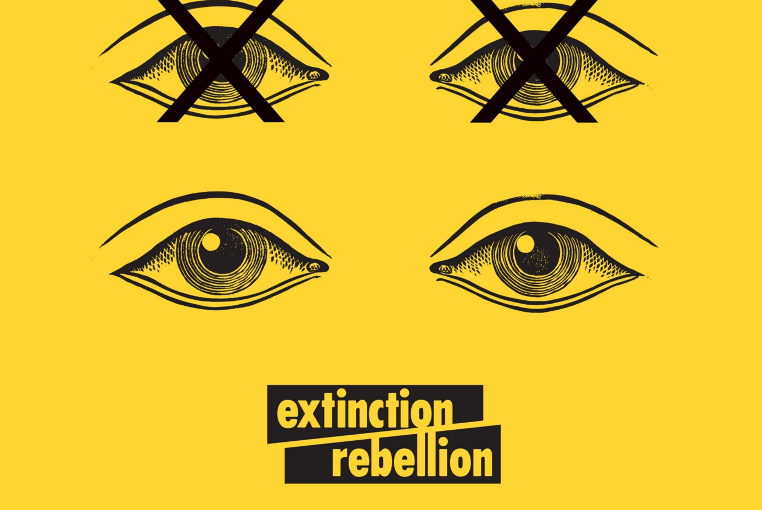The small, but definitive, change produced by the UK Climate protest movements.
At the start of October, I attended a JustStopOil march in London. The march disrupted roads, occupied parliament square, and held speeches before setting in to block London bridge. Over the following days, which I did not attend, the protests became more disruptive. Actively blocking bridges, major roads, and oil stations throughout the capital for extended periods, with many being arrested in the process.
This was the first direct action march I had ever attended, having been out of the country during Extinction Rebellion’s rise and only returning during the heights of COVID. It was a rousing atmosphere, a rare moment to be physically given over to collective purpose, in an era characterised by distance and atomism. All walks of life and motivations were represented in the march. Retirees, mothers, students, professionals, doctors, and children. All had hope, but expected doom — fighting for a future they thought unlikely. Even the most dedicated partisans, those who arrived with no identifying items prepared to get arrested and cause maximum disruption to spread their message, confided their worries that this was all fruitless — acting out because all real political avenues were closed by fossil-fueled oligarchs.
But this struck me as strange. Not because climate and ecological breakdown isn’t driving us to catastrophe, nor because Britain’s political system isn’t entirely consumed by the politically outmoded and societally destructive growth-delusion. No, what I found odd was the idea that JSO, Insulate Britain, and Extinction Rebellion have never really achieved anything. Because, as I have seen firsthand, this just isn’t true.
The Boring Victory
In a previous role with an sustainability consultancy, I worked to help local councils craft their ‘climate action plans’. Some were ambitious, some less so. Almost none would, even on paper, reach the emissions reductions necessary for a 1.5C world. However, they were steps in the right direction. If even a tenth of the emissions reductions our report suggested as necessary were carried out, then the worst-case climate scenario would be ever so slightly deviated away from. These councils, ranging from small towns to entire counties, could do little in the grand scheme of things. Constrained by government, political economy, and the ideological limits of a fossil-fueled culture –not to mention simple inertia — their climate actions could always do more, but never enough.”
But they were doing something. Emissions reductions, pedestrianised streets, renewable energy farms, and even just LED lights in office buildings, were all something rather than nothing. These actions were nested in long, boring reports, and so didn’t make headlines or achieve much notice. Likewise, the fact that the reports were always unlikely to reflect reality put a dampener on any potential excitement. But (almost) all these reports had a far more exciting component tucked away in a single paragraph of every ‘context’ page: The Climate Emergency Declaration!
Declare Emergency Now!
Whilst often overlooked, one of Extinction Rebellions’ earliest demands was a simple recognition of the climate emergency. Such a declaration is a visible statement that the body issuing it recognises (and accepts) the dire state of climate breakdown and that, on current trajectories, we are heading towards an apocalypse. The declaration is also a call to collective action, one the issuers must — even if not legally binding — rally to. The UK has not declared such an emergency at the national level, but the story is different at the devolved and local levels. Scotland and the Welsh Senedd have declared such emergencies, and dozens of county, borough, and city councils have followed suit.
It’s easy to be cynical and assume these declarations aren’t worth the paper they’re printed on, and whilst far from actual emergency mobilizations, they have had impressive real-world impacts.
The Welsh Senedd, using the declaration as its justification, froze all new road developments in the nation. This will prevent vast quantities of CO2 from entering the atmosphere, from both construction and usage, and shows real dedication to their emergency declaration.
Likewise for local councils. As smaller political units more beholden to their residents, declaring a climate emergency has often compelled them to create or commission the kind of climate action plans I used to produce. Whilst many did so enthusiastically, I spoke to a few councilors and council employees who were openly angry about how far their climate-conscious residents were pushing them. But they had declared emergencies, and now had to act on them. The declarations created an avenue for popular demands to find their way into the operations of the civil service.
In sum, we can draw a direct genealogy between the raucous XR protests of 2018/19 with many of the renewable energy, decarbonisation, and ecological restoration efforts undertaken by UK councils in the proceeding years. I can’t say how much carbon has been avoided or sequestered, or how much good the Climate Emergency Declarations will ultimately do. But they did something and opened the path to further action. Thousands of people causing chaos in the streets of Britain changed policy for the better, and that policy has led to a concrete reduction in emissions.
I’m not going to pretend this means we are on course for averting climate breakdown, nor even that such direct-action protests and disruptions always work. Insulate Britain, seemingly the most logical policy proposal made in the UK for a decade, was vilified almost out of existence. But I want protestors to avoid the fatalism I saw in London, and to remember that protest and disruption do work, no matter how little or how much. The actions of climate protests have instigated real action before, and they will, and must, do so again.
Teaser photo credit: XR volunteer graphic design poster





